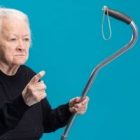Once upon a time, the word “advocate” was contentious: doctors didn’t want us in the room, nurses didn’t want us next to a hospital bed, and health insurers thought we patient advocates were nothing but troublemakers.
But in recent years there seems to have been a major shift in attitudes. I’m hoping you can help us assess that.
This point came up in several recent conversations with people who have been doing advocacy work for many years; who have been able to observe attitudes for quite awhile, and who tell me they have seen this shift with their own eyes.
The shift> From wary standoffishness – to a lovefest!
As follows:
As health and patient advocacy morphed into a full-blown profession (back around 2009-2010) the existing medical system resisted, resisted, resisted. Because of the way the system works (in Canada as well as the US) – with money, not care, at its core — having to deal with an extra person, an advocate who held toes to the fire, meant having to spend additional time, having to provide additional answers, and generally, major annoyance for anyone providing care to patients.
- Doctors (representing front-line providers), whose time with their patients was becoming more and more limited by outside insurance and practice management forces, were simply frustrated and annoyed.
- Nurses, especially those who encountered advocates in hospitals sitting by clients’ bedsides, were resistant; they were sure we were there to report them for wrongdoing.
- Medical billers and health insurers saw every encounter with an advocate as a losing proposition; they knew they were going to “lose” on the amount of money owed once an advocate was finished working with them.
But today, many advocates have reported to me that they aren’t experiencing so much resistance anymore. In fact, they describe a sea change in how they are being recognized and respected by medical providers:
- Doctors now welcome them into the exam room and patient discussions because they realize that the term “advocate” means the professional is also advocating for them. For doctors, patients, and advocates: win-win-win. Everyone’s experience improves.
- Nurses, even those working in hospitals, realize advocates are there as part of a team to improve the patient’s stay; to keep the patient safer, to reduce infections, and to take care of many of the “small” tasks that might have resulted in a patient using a call button if no advocate was available.
- Hospitals realize the real benefits of independent advocates, who don’t cost THEM anything, when it comes to discharge and general hospital patient safety. Advocates are improving the hospital experience, and saving the hospital money as a result.
- (Medical billers and health insurers – they are no longer simply annoyed. Now, for the most part, they KNOW they are on the wrong side of a losing proposition! No lovefest there!)
Is this true> Have you had similar experiences> Please take this poll:
[socialpoll id=”2510997″]
I hope we find that you, too, are seeing this attitude of acceptance and respect as we continue improving our clients’ healthcare experiences and outcomes.
Additional comments> Suggestions for other advocates? Please share below.
MASTER LIST OF PRACTICE RESOURCES? |>LEARN ABOUT APHA MEMBERSHIP | REASONS PATIENTS NEED ADVOCATES






I find that most are receptive, but there still seems to be a lack of understanding about what we do and are surprised!
I actually was surprised to start getting calls from several individuals that a local doctor is handing out my card to! I don’t know where he got them, but I am keeping him supplied now! He calls me a “bulldog” lol.